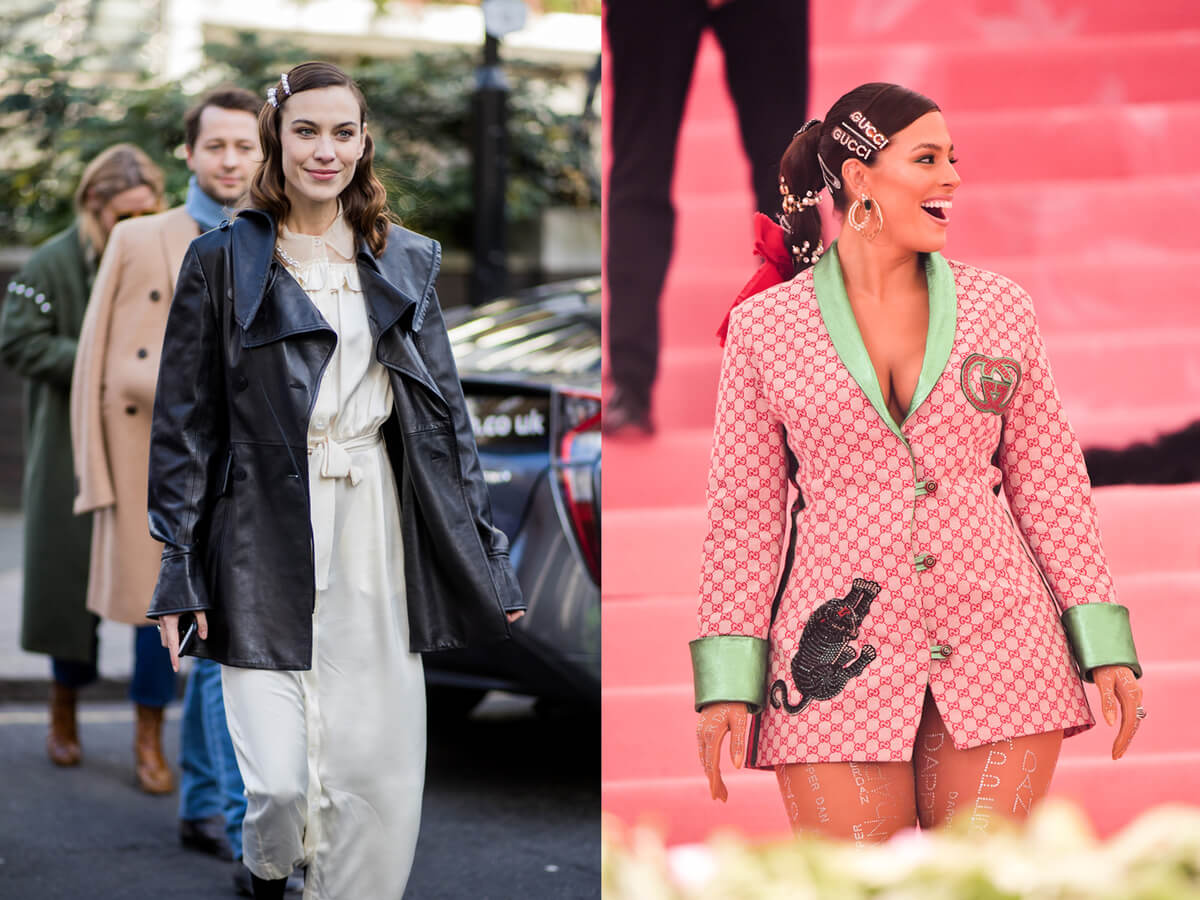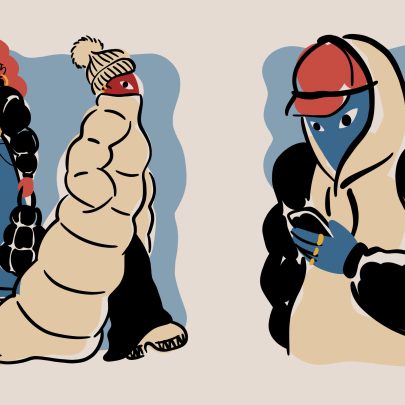Oct 12, 2019 Fashion
All of a sudden it’s as if every second woman in Auckland is sporting an oversized pearl hair clip. Where did the trend come from? And why are they so popular? Harriet Pudney investigates.
Trends happen like drizzle turning into a downpour. You notice them here and there, say “God, is that rain?”, then suddenly you’re dashing out to the washing line to pull your sheets in. Remember in 2004 when jeans got skinny? Or in 2011 when Jeffrey Campbell Litas made it off Tumblr and into real life? Or in 2015 when everyone was yelling about activewear? Before they were inescapable, each of these looks spent a year or so building to saturation.
So it is now with those huge pearl hair clips you will have seen on every other woman under 35. You know the ones. Covered in plastic pearls, or sequins, or beads, sometimes they spell out a very internet-y word like VIBES or BOSS. Even the more low-key options, in a plain colour or tortoiseshell, tend to be so big as to dominate someone’s look. These clips aren’t just there to hold your hair back. Hyperfeminine and bold, they’re made to be noticed.
Which is fine, and if you like them you should wear them, but the question remains: where did they come from? As a style they’re whimsical at best and juvenile at worst. Why are so many people wearing them?
Identifying patient zero in any trend is more of an art than a science, but it’s my belief that we can lay the blame for this one at the feet of Gucci’s creative director, Alessandro Michele. Since taking over at the start of 2015, the more-is-more aesthetic he brought to the house has been inescapable. Think sequins on everything, clashing prints, and models carrying their own heads down the runway. It’s surreal and over the top, and for most of us, not especially wearable. Which is hardly the point, of course, but it does mean that when there’s an element you can work with to show you know what’s going on in the fashion world, you might be interested in adopting it.
Enter the hair clip. Gucci have been selling their sequin logo version for AU$530 for at least a year, which is more than enough time for the look to trickle down to us plebeians who shop at Glassons (their clips will get you change from $10). Irish designer Simone Rocha also did a lot of work to popularise the look, but it’s Gucci who sent model Ashley Graham to this year’s Met Gala with about a dozen spangled clips in her hair.
There’s a middle ground here, too. Semi-relatable celebrities like Australian writer Zoe Foster-Blake and cool-girl brands like Valet Studio interpreted the look in a way that made it seem more doable for your classic Saturday night, and apart from anything else, they put it in front of us. The more you see something, the more you think, “I could wear that.”
Brands have always sought to make a bit of their essence and prestige available to people who can’t afford most of what they manufacture. It seems unlikely that I’ll ever own a Dior dress, but I could get a lipstick tomorrow with minimal wincing. The runway shows create the brand’s image, but many more potential customers can afford a pair of sunglasses or a bottle of perfume than will ever be in a position to buy the clothes.
The hair clips do the same thing. Even if you’re not going for the designer version, wearing one of these signals that you know what’s going on, fashion wise. Whether you lean more K-pop star or Cher Horowitz, it’s a low-investment way to look current and in the know.
However, it might not be for much longer. The picture of Alexa Chung that accompanies every story about this trend was taken in February last year. ?Gucci’s sales are faltering. The end could well be in sight for exaggerated everything, including Instagram-ready hair clips.






